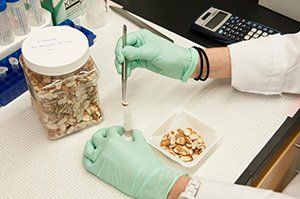Industry News: FDA’s Approval of New Peanut Allergy Treatment Drug for Children
The U.S. Food and Drug Administration (FDA) has recently approved Palforzia, a drug that can reduce the effects of allergic reactions to peanuts. Children between the ages of 4 and 17 years can mitigate their symptoms using this drug. Medical services must understand this new development and receive relevant training for its use.
Anaphylaxis: A Widespread Issue
Peanut allergies affect a million children in the United States. There is currently no cure, and few will outgrow the sensitivity. Even minor exposures can have life-threatening consequences, so this new treatment will significantly reduce the risk for affected children.
Peanut allergies occur when the body erroneously treats peanut-based foods as harmful. Antihistamines and epinephrine are useful treatments for minor exposure, but no medication can alleviate severe reactions. Even Palforzia itself is only for risk mitigation.
What Does Palforzia Do?
Palforzia is a peanut-based powder that mixes with soft foods. Double-blind, placebo-controlled studies confirmed both the effectiveness and safety of the drug. However, patients with asthma should avoid Palforzia, as throat irritation and shortness of breath are recorded symptoms.
See the FDA’s official news release regarding Palforzia for more information on these studies.
How Dosage Works
The use of the treatment consists of three main stages:
- Initial Escalation. This step involves increasing the dosage 11 times over the course of several months. A healthcare professional oversees the process, checking for severe reactions such as anaphylaxis.
- Up-Dosing. In this stage, the patient continues to take an elevated dosage at home.
- Maintenance. Afterward, the patient maintains an even quantity of the drug. A doctor may modify the dosage schedule should any allergic reactions occur as a result of the drug.
Because it’s a relatively new drug, the FDA requires a Risk Evaluation and Mitigation Strategy (REMS). That is, Palforzia will only be available through certified healthcare providers. Education on peanut allergies and the drug is mandatory, such as knowledge on recognizing anaphylaxis and correctly monitoring patient health during the dosage process.
CfPIE Has You Covered
With the introduction of a new drug that has the potential to solve something as prevalent as peanut allergies, it’s important that your teams stay updated with the latest information.
As previously mentioned, education is a necessary component of REMS certification. If you’re interested in tracking the progress of this new treatment and want to refresh your organization’s knowledge on this matter, consider taking some of CfPIE’s pharmaceutical and biotech training courses.
For a list of our available biotech, medical device, skincare, and pharmaceutical training courses, please click here. Alternatively, you may contact the CfPIE team by calling 1-610-648-7550 or emailing [email protected].
Blog Categories
Stay Informed



